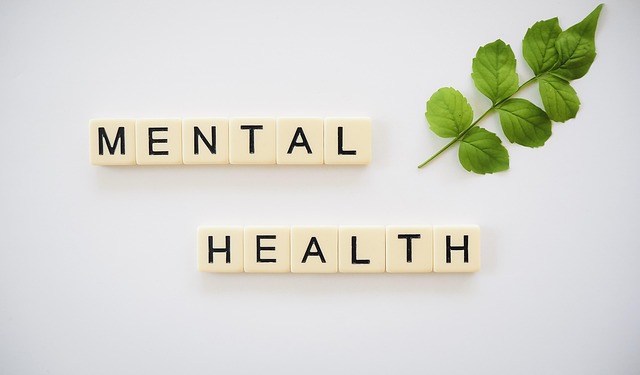Mental illness stigma, driven by societal misconceptions, significantly impacts individuals and families. It creates barriers to seeking help and traps families in secrecy. Superior Parenting Skills therapy offers a solution by enhancing communication strategies, promoting cultural sensitivity, and providing tools for emotional understanding. This approach fosters open dialogue, strengthens family bonds, and empowers children to seek early intervention, ultimately reducing stigma around mental illness within families. By combining superior parenting skills training with therapy, parents can create safer, more supportive environments for their children's mental health.
Mental illness stigma remains a significant barrier to treatment, impacting individuals and families alike. This article delves into comprehensive strategies to reduce this social burden. We explore the root causes of mental illness stigma and its profound effects on affected persons and their loved ones. Key focus areas include education through superior parenting skills, leveraging therapy as a powerful tool, and fostering effective communication within families. By implementing these strategies, we aim to empower parents in supporting their children’s mental health and fostering more inclusive communities.
- Understanding Mental Illness Stigma: Causes and Impact on Individuals and Families
- The Role of Education and Awareness in Reducing Stigma: Strategies for Parents
- Therapy as a Powerful Tool: Empowering Parents to Support Their Children's Mental Health
- Effective Communication and Support: Enhancing Family Dynamics through Superior Parenting Skills
Understanding Mental Illness Stigma: Causes and Impact on Individuals and Families

Mental illness stigma is a complex issue deeply rooted in societal misconceptions and fear. It arises from a lack of understanding of mental health conditions, often leading to judgmental attitudes and discriminatory behaviors. This stigma significantly impacts individuals affected by mental illnesses, creating barriers to seeking help and fostering isolation. The consequences are far-reaching, impacting not only the person struggling but also their families.
Stigma can lead to social exclusion, affecting one’s ability to maintain relationships and find support. It often results in a cycle of avoidance and secrecy, hindering access to essential resources like therapy and superior parenting skills training. Families may struggle to develop inner strength and empathy-building strategies due to the stigma, making it challenging to navigate mental health challenges together. Public awareness campaigns play a pivotal role in development by educating the public, fostering empathy, and promoting early intervention.
The Role of Education and Awareness in Reducing Stigma: Strategies for Parents

Therapy as a Powerful Tool: Empowering Parents to Support Their Children's Mental Health

Therapy plays a pivotal role in reducing the stigma surrounding mental illness by offering a safe space for individuals and families to navigate challenging emotions and experiences. When it comes to supporting children’s mental health, superior parenting skills can be significantly enhanced through therapy. This supportive approach equips parents with effective strategies to understand and address their child’s emotional needs, fostering an environment that promotes resilience and open communication.
By participating in therapy, parents gain valuable insights into building confidence in their ability to support their child’s well-being. They learn techniques for burnout prevention, ensuring they can provide consistent care without compromising their own mental health. Furthermore, cultural sensitivity in mental healthcare practice is essential, as therapists guide parents in navigating diverse perspectives and beliefs surrounding mental illness, fostering an inclusive environment that respects every family’s unique situation.
Effective Communication and Support: Enhancing Family Dynamics through Superior Parenting Skills

Effective communication is a cornerstone of reducing stigma around mental illness, especially within family dynamics. Superior parenting skills, honed through therapy and emotional intelligence training, can significantly enhance how families navigate mental health challenges. By fostering open dialogue, parents can create safe spaces for children to express their feelings and fears without fear of judgment. This not only eases the burden of isolation often associated with mental illness but also empowers children to seek help early on, potentially preventing burnout as they grow older.
Cultural sensitivity in mental healthcare practice is another vital aspect that plays into this equation. Parents equipped with superior parenting skills can better understand and address the unique cultural nuances that may impact their child’s mental health. This understanding, coupled with emotional intelligence, allows for more tailored support and strengthens the bond between parent and child. Together, these strategies create a supportive network that promotes resilience and encourages help-seeking behaviors, ultimately reducing the stigma surrounding mental illness within families.
Reducing mental illness stigma is a multifaceted process that requires understanding, education, and action. By recognizing the causes and profound impact of stigma on individuals and families, we can empower parents with superior parenting skills and therapeutic tools to create supportive family dynamics. Through awareness strategies and effective communication, we can foster an environment where mental health conversations thrive and support systems are enhanced. Together, these efforts revolutionize how we navigate mental illness, ensuring those affected receive the care and understanding they deserve.









